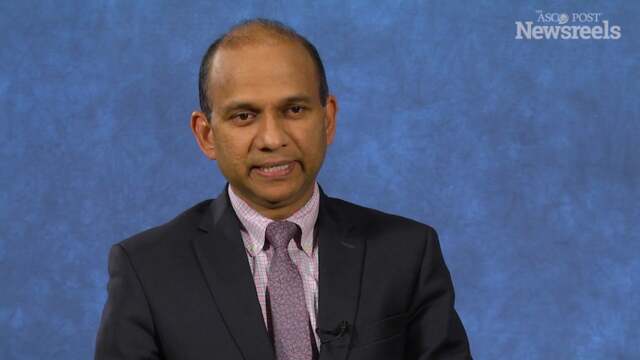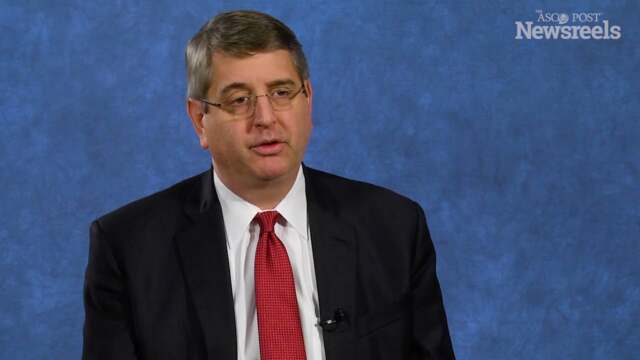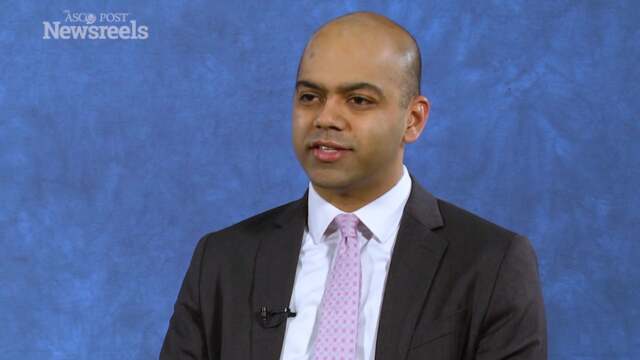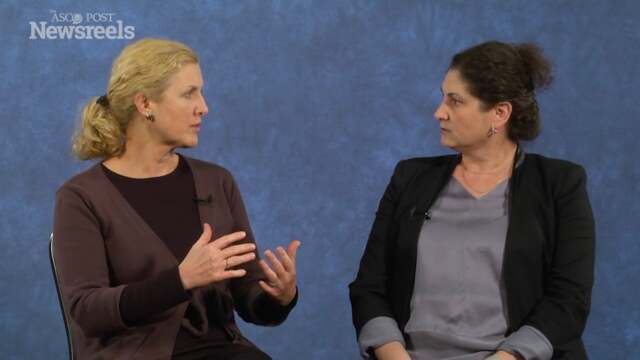Mothaffar Rimawi, MD, on HR-Positive, HER2-Positive Breast Cancer: Results of the NRG Oncology/NSABP B-52 Trial
2016 San Antonio Breast Cancer Symposium
Mothaffar Rimawi, MD, of the Smith Breast Center at Baylor College of Medicine, discusses phase II findings from a study evaluating pathologic complete response in patients with HR-positive, HER2-positive disease treated with neoadjuvant docetaxel, carboplatin, trastuzumab, and pertuzumab with or without estrogen deprivation (Abstract S3-06).
Diana M. Eccles, MD, of the University of Southampton, discusses findings from a study of sporadic and hereditary breast cancer and whether BRCA status affects outcome in young breast cancer patients (Abstract S2-03).
Jame Abraham, MD, of the Cleveland Clinic, gives his perspective on study results of extended adjuvant endocrine therapy in postmenopausal women with estrogen receptor–positive breast cancer who have completed previous adjuvant endocrine treatment (Abstract S1-05).
Harold J. Burstein, MD, PhD, from Dana-Farber Cancer Institute, gives an update on the duration of adjuvant endocrine therapy and offers his expert views on putting the research data into clinical practice.
Nikhil Wagle, MD, Dana-Farber Cancer Institute, discusses the genomic sequencing of ER-positive metastatic breast cancer that has become resistant to therapies and the implications for the choice of next therapy, clinical trial eligibility, and novel drug targets (Abstract S1-01).
Lisa A. Carey, MD, of the University of North Carolina, and Ingrid A. Mayer, MD, of the Vanderbilt-Ingram Cancer Center, discuss the current studies on neoadjuvant systemic treatment in the triple-negative disease setting.





